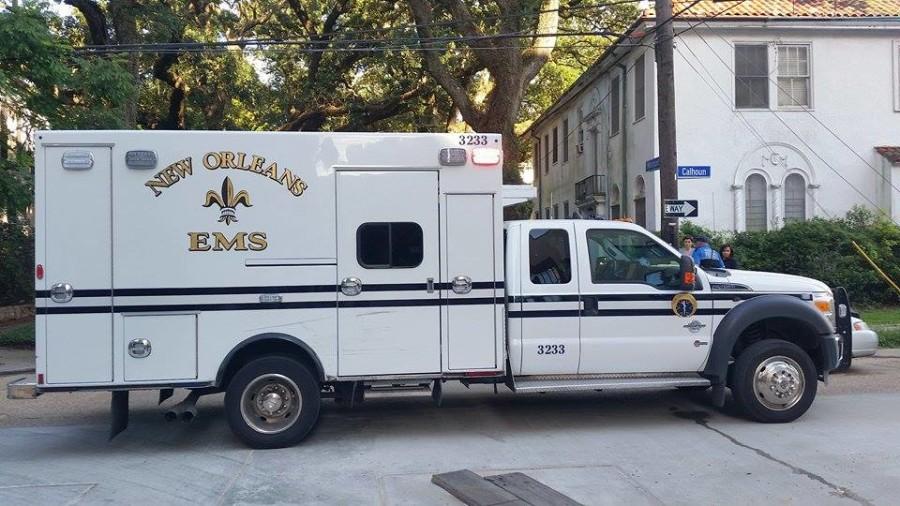Loyola students no longer able to use TEMS
New Orleans EMS is one service that will respond to emergency calls from Loyola’s campus since Tulane Emergency Medical Services has been discontinued. New Orleans EMS has worked with Loyola before, and will fill the void that TEMS has created.
September 17, 2015
On Sept. 4, J. Davidson “Dusty” Porter, vice president of student affairs for Tulane University, announced that the Tulane Emergency Medical Service has been discontinued due to a violation of the student code of conduct.
As many students may know, this discontinuation greatly affects Loyola, Tulane and the Uptown area. Though TEMS is currently discontinued, there is a possibility that it could return in the future, according to Porter.
TEMS was a student-run organization that is known around the Loyola campus for its fast response time and free-of-charge services and ambulance transport. TEMS officials were also known for efficiently handling student emergencies.
While the exact cause of the suspension has not been disclosed by university officials, the reason involves a violation of student conduct.
“Last year, the TEMS organization was placed on deferred suspension after accepting responsibility for these violations. Two weeks ago, the TEMS organization was charged with another violation of Tulane’s student code of conduct,” Porter wrote to Tulane students in an e-mail regarding the suspension.
Loyola will now be utilizing New Orleans Emergency Medical Services and Acadian Ambulance Services in place of TEMS. In the past when TEMS would be unavailable, Loyola would utilize these resources. Loyola has also been working with New Orleans EMS and Acadian Ambulance even before TEMS offered to team up with Loyola.
The average amount of calls TEMS received within an academic year was between 30 to 60.
Unlike TEMS, New Orleans EMS and Acadian Ambulance respond to citywide calls. This affects the response time depending on the day, the time of day and where their calls are located.
Stephen Murphy, director of emergency management for Loyola, confirmed that all calls will now be dispatched through 911 rather than the designated number for TEMS.
“We would call 911 for medical needs, and, in that system, New Orleans EMS is the primary provider. Depending on call volume and established events across the city, New Orleans EMS dispatch could send another partner, such as Acadian, to respond to the scene,” Murphy said.
“While TEMS/Tulane provided basic medical service, they were always backed by New Orleans EMS anyway. We should support TEMS when they come back, but I don’t think it will hurt us from a medical needs perspective,” Murphy said.
A notable feature that distinguished TEMS from the other medical services is the complimentary treatment as well as ambulance ride. Both New Orleans EMS and Acadian Ambulance will charge students if they need to be taken to the hospital.
Andrew Lemoine, Tulane neuroscience senior, is concerned these charges might affect student emergencies.
“I think it was a great resource for students, and I really hope its absence will not have a negative effect on our community,” Lemoine said. “I hope there is never a situation in which a student does not want to call an ambulance because they can’t afford the fees.”
While the response time may present a difference in how emergencies are handled on campus, Robert Reed, Loyola’s assistant vice president of student affairs, believes it is nothing to be concered about.
“New Orleans EMS and Acadian both put more resources on the weekends because that’s when they get most of their calls. It may depend on what calls are going on with them but other than that, it shouldn’t affect anybody significantly in that sense. We’re just going back to what we’ve done in the past. We’ve never had a situation where they don’t respond at all or we’ve had an issue,” Reed said. “We’re hoping TEMS will come back at some point in time and we’ll be able to establish that relationship with them again.”
The exact date as to when TEMS will be back in service is currently unknown.
“Loyola continues to communicate and coordinate with Tulane regarding this situation, but we have also coordinated closely with New Orleans EMS in light of the changes,” Murphy said.






